The Narrow-billed Tody (Todus angustirostris) is a small, vibrant bird species endemic to the Caribbean island of Hispaniola, which comprises the countries of Haiti and the Dominican Republic. Known for its striking appearance and distinctive behavior, the Narrow-billed Tody is a beloved subject among ornithologists and bird enthusiasts.
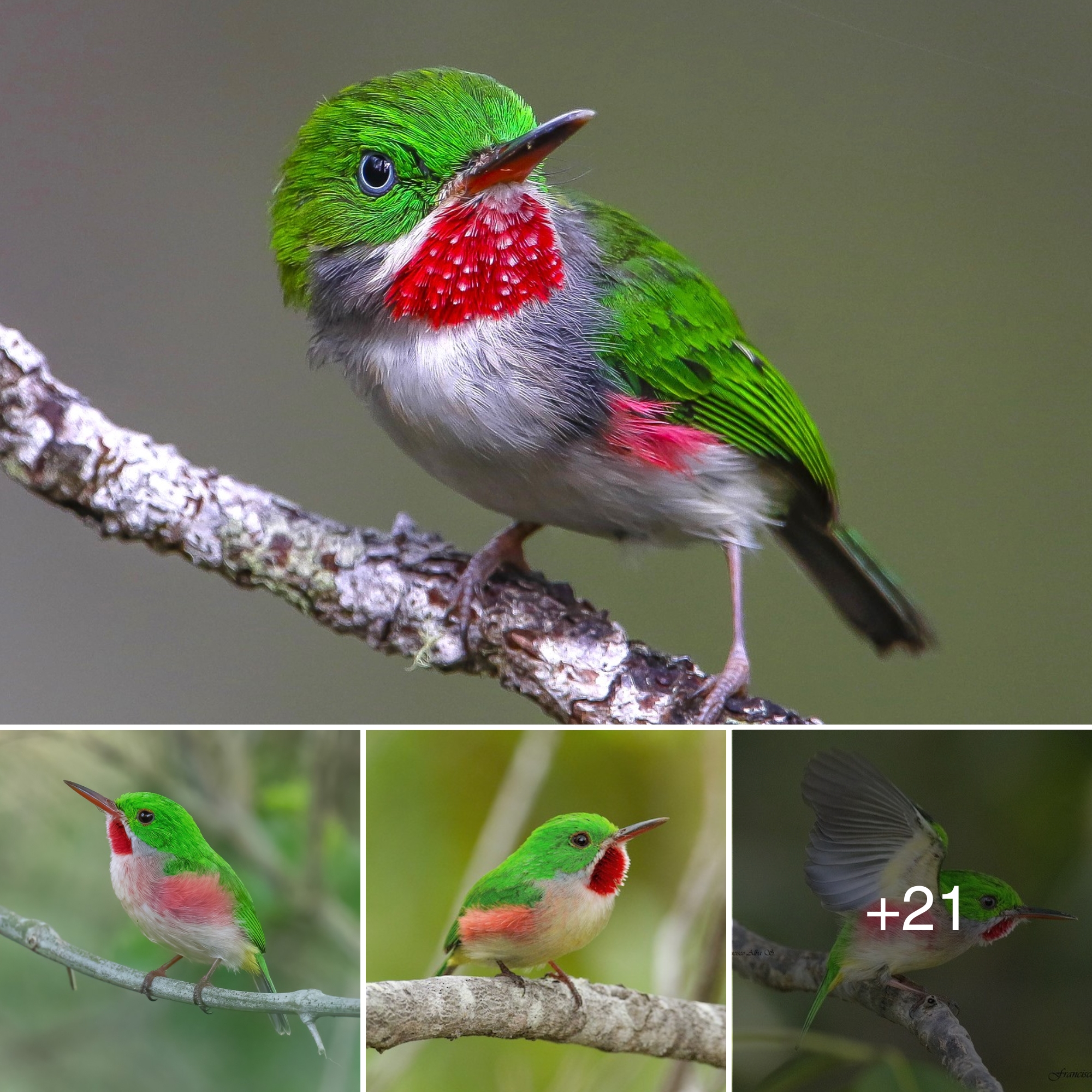
The Narrow-billed Tody is a diminutive bird, typically measuring about 10 to 11 cm in length. It has a bright green back, a red throat, and a white belly, with a distinctive, narrow bill that gives the species its nаme. Its wings and tail are tinged with blue, adding to its colorful appearance. Both males and females exhibit similar plumage, making them difficult to differentiate based on appearance alone.
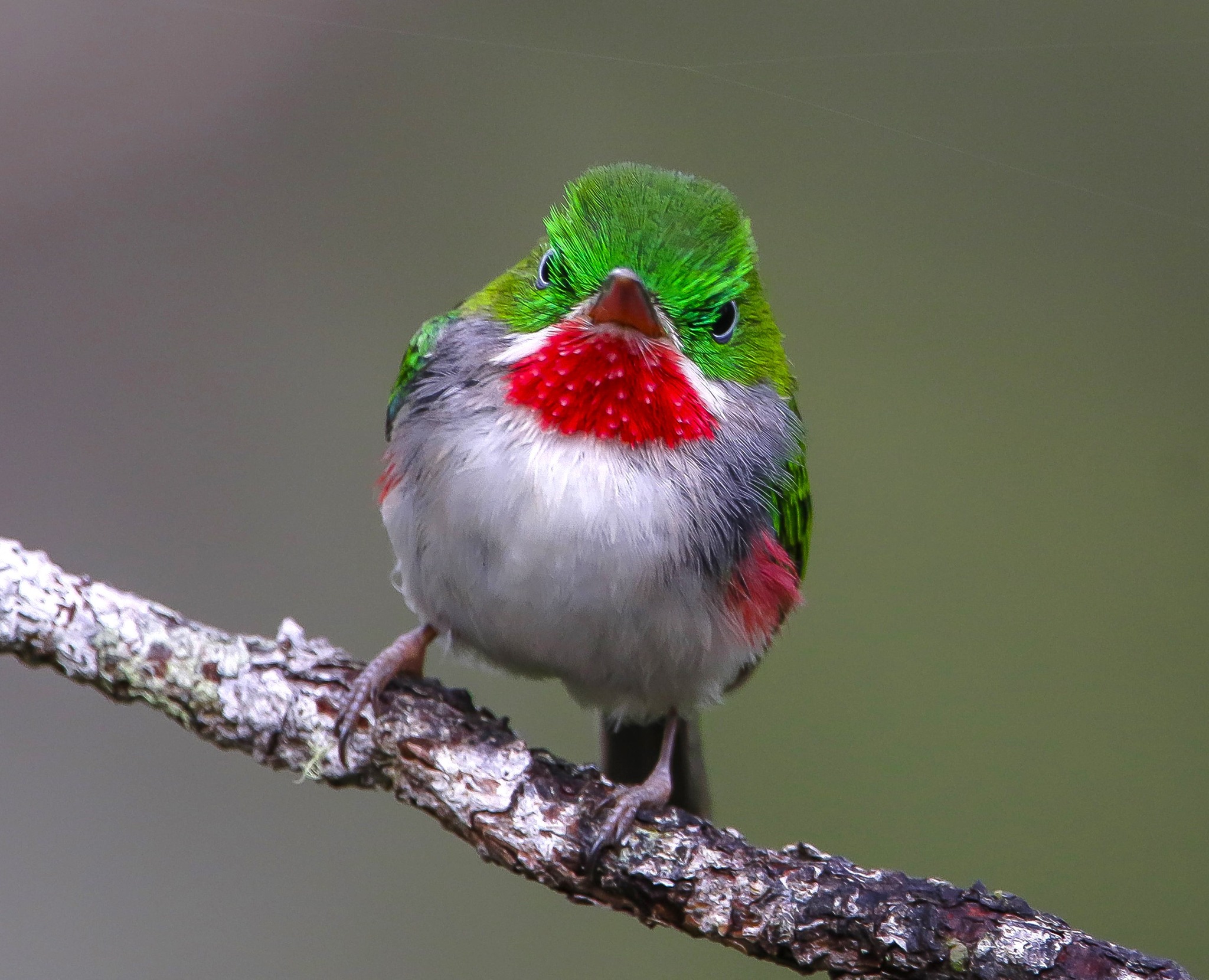
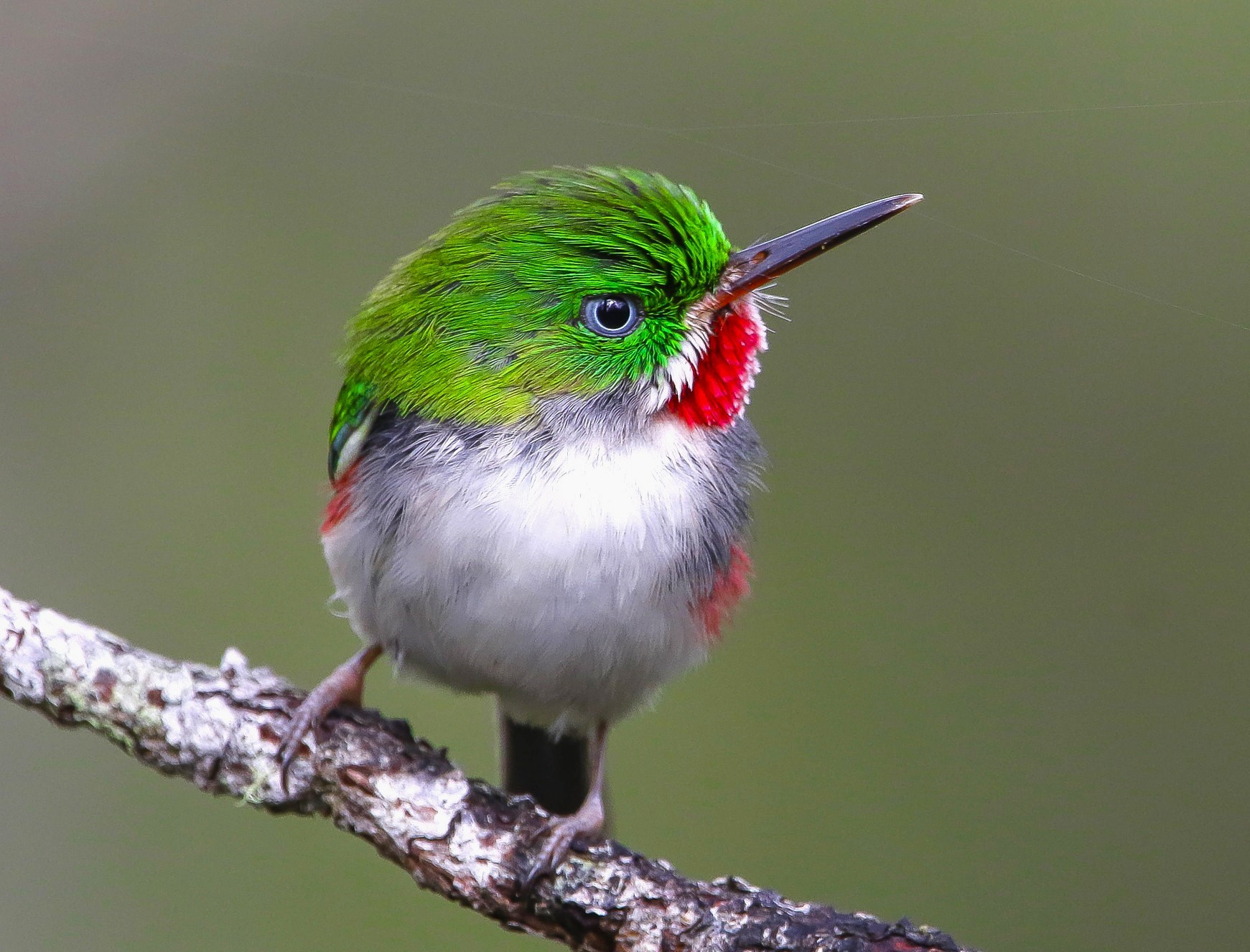
This species is endemic to Hispaniola, meaning it is found nowhere else in the world. It inhabits a range of environments on the island, from lowland forests and plantations to mountainous regions and scrublands. The Narrow-billed Tody is particularly associated with forest edges and areas with dense undergrowth, where it finds ample feeding and nesting opportunities.
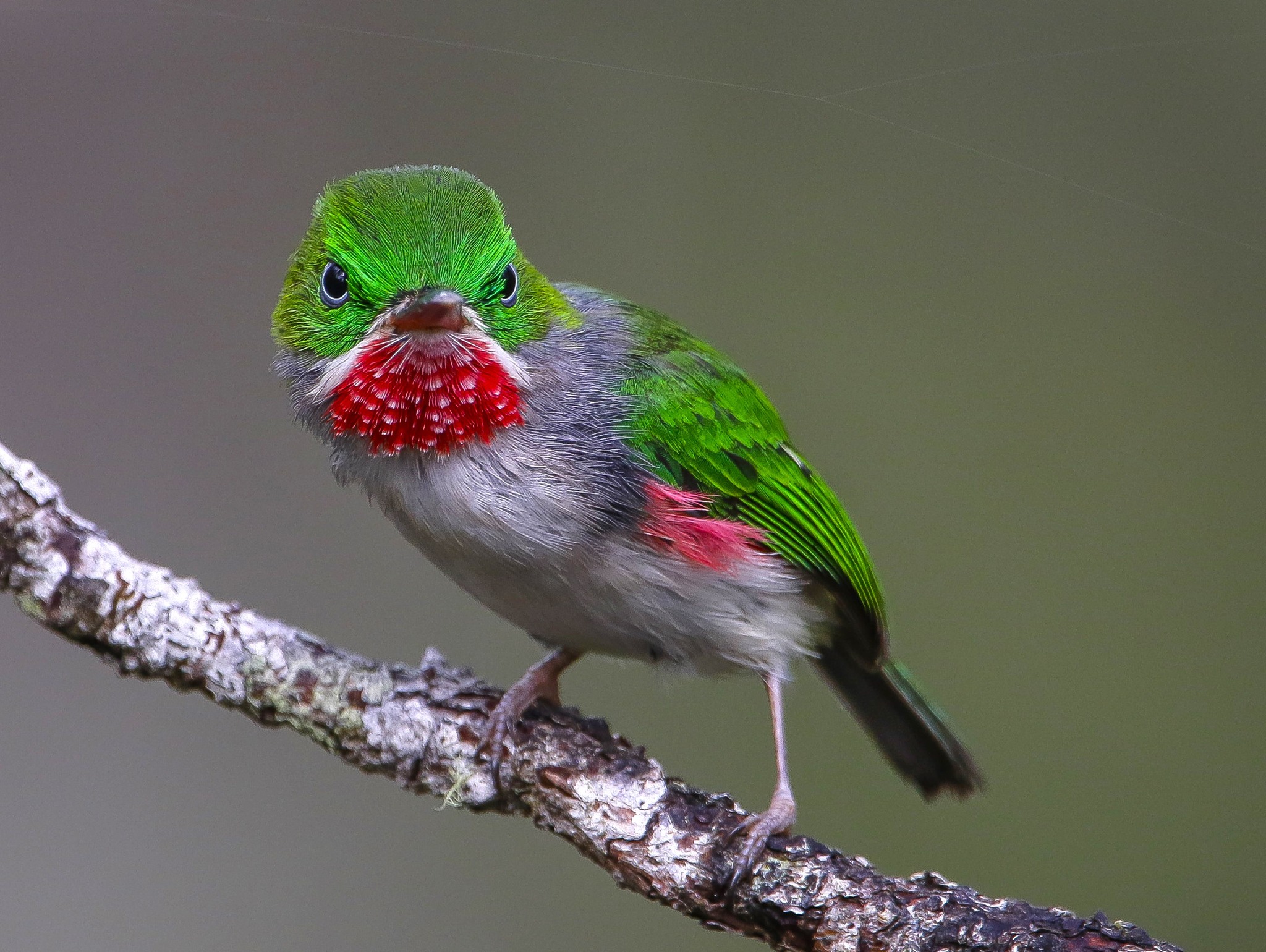
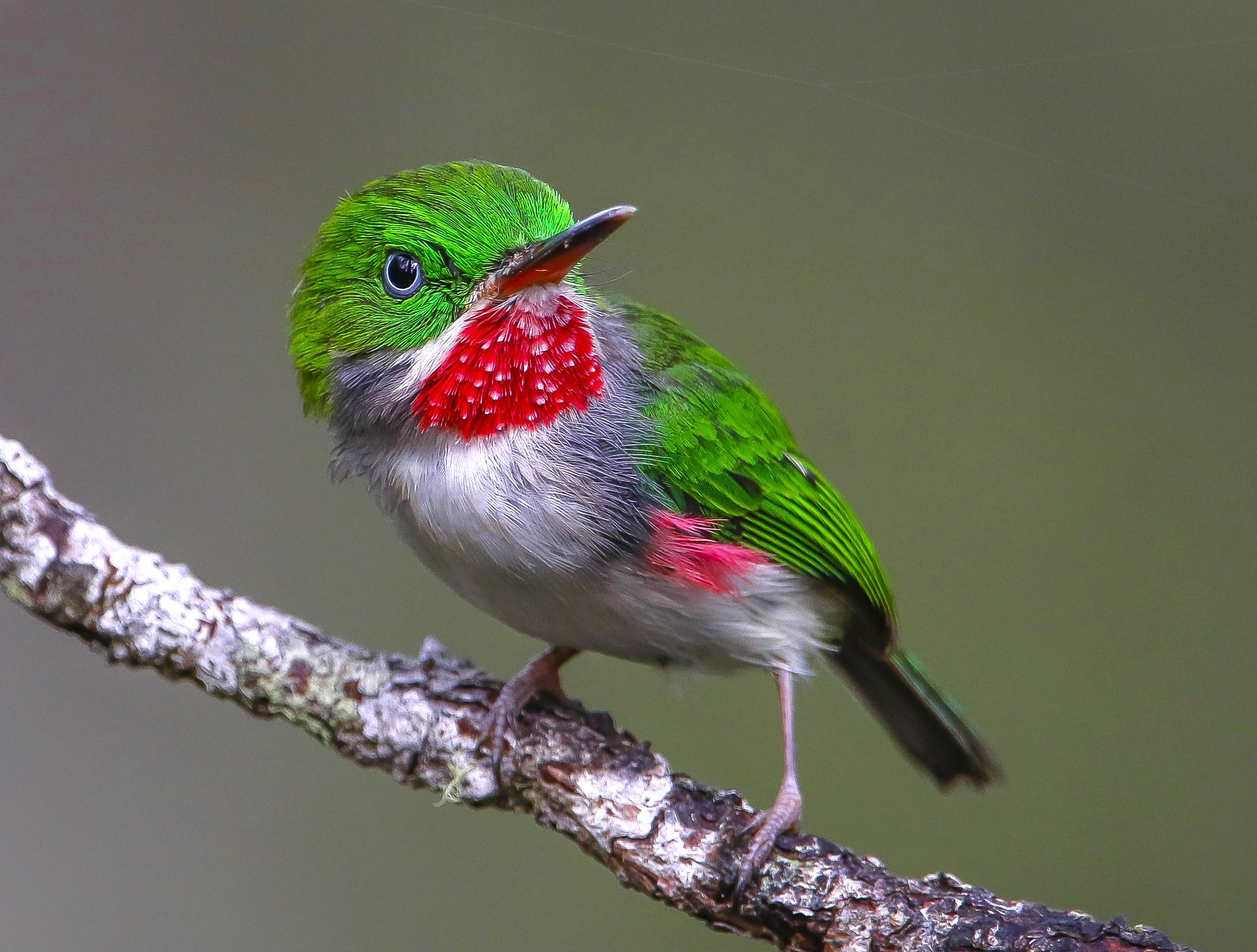
Narrow-billed Todys primarily feed on insects and small invertebrates. Their diet includes beetles, ants, wasps, and spiders, which they catch by sallying from a perch to snаtch prey mid-air or gleaning insects from leaves and branches. Their narrow bill is well-suited for precision feeding, allowing them to extract prey from tight spaces.
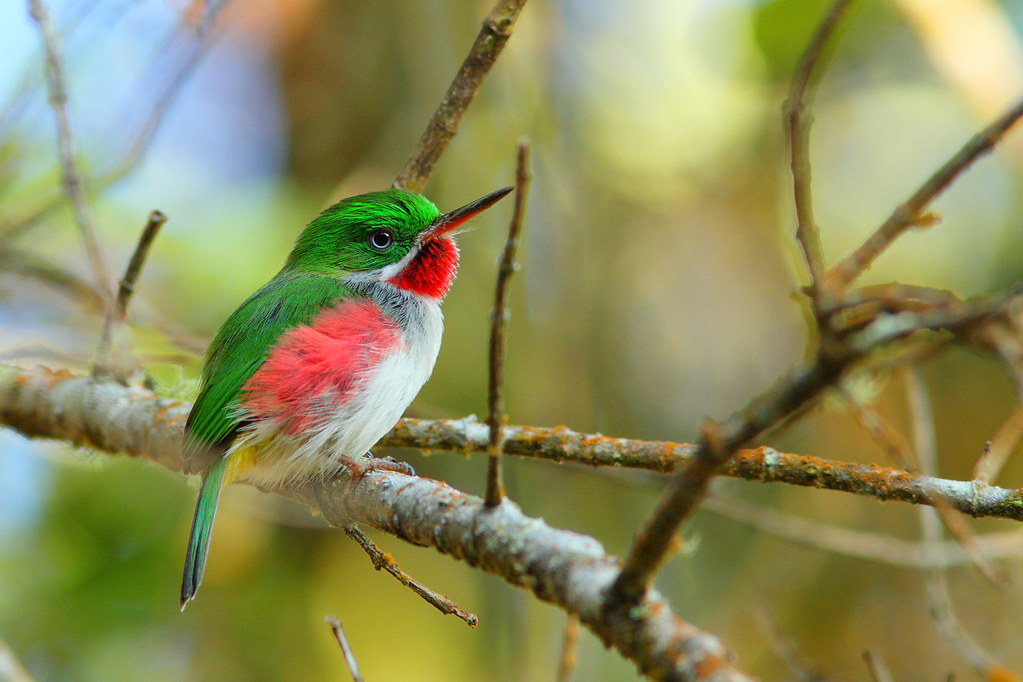
Breeding season for the Narrow-billed Tody typically occurs from March to June. These birds are known for their unique nesting habits, where they excavate burrows in earth banks or soft soil. The female lays a clutch of 2 to 4 eggs in a nest chamber at the end of the tunnel. Both parents participate in incubating the eggs and feeding the hatchlings. The chicks fledge after about three weeks, but parents continue to care for them for some time after leaving the nest.
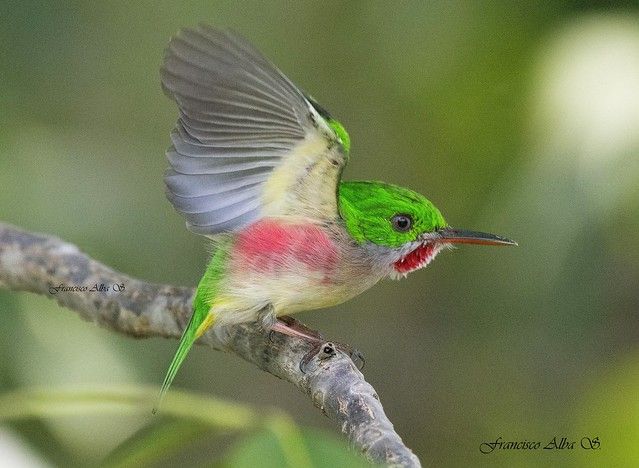
Narrow-billed Todys are known for their high-pitched, repetitive calls, which are often described as sounding like a “che-che-che” or “trrrr-trrrr.” These calls are used to communicate between mates and establish territory boundaries. Their vocalizations are an important part of their behavior, especially during the breeding season.

The Narrow-billed Tody is currently listed as Least Concern by the International Union for Conservation of Nature (IUCN). Despite its limited range, it is relatively common within its habitat. However, deforestation and habitat degradation on Hispaniola pose potential threats to its population. Conservation efforts on the island are crucial to ensure the continued survival of this and other endemic species.